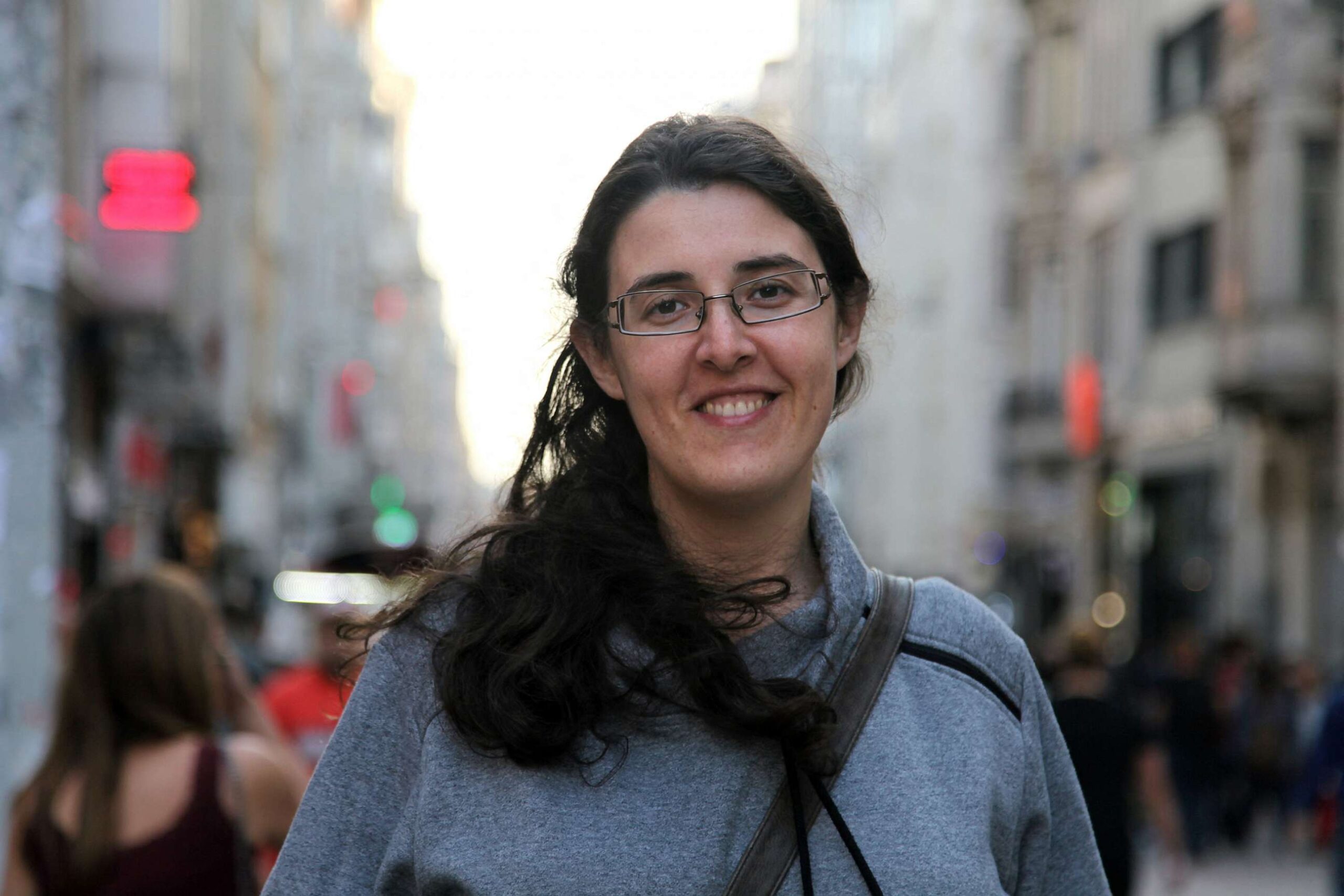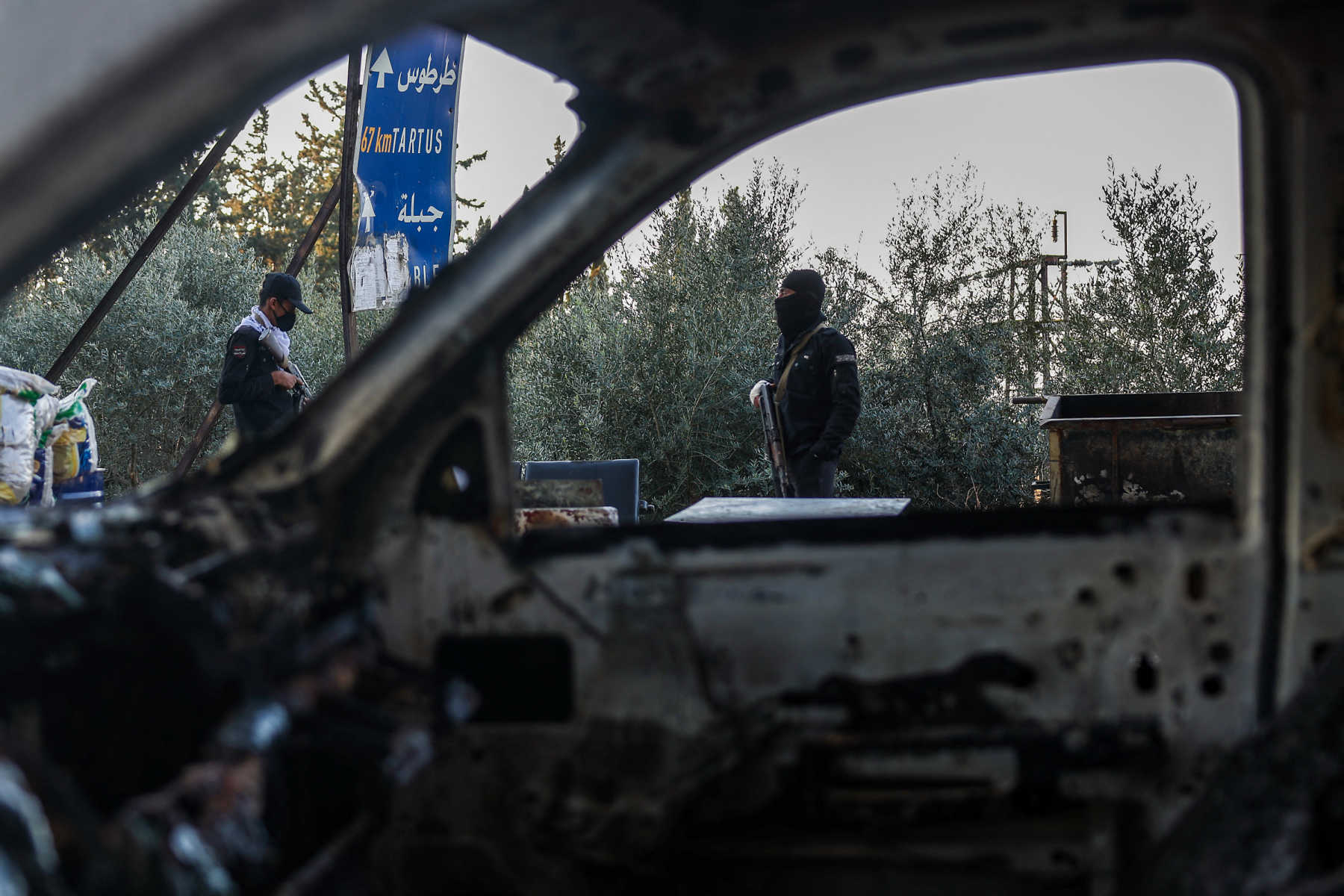For six years, Khalil al-Halabi has been exhorting anyone who will listen to help him in his family's quest to free his son Mohammad al-Halabi, the Gaza Strip director of humanitarian organization World Vision, from Israeli prison.
When Israel arrested Mohammad al-Halabi in 2016 and held him incommunicado for weeks, it accused him of diverting money and resources to Hamas, the Islamist party and de facto government in Gaza that Israel and some other countries consider a terrorist organization. World Vision, which suspended its operations in Gaza after Israel made its allegations, subsequently found no evidence of wrongdoing, and the organization has fully financed his legal defense. An independent audit conducted by Deloitte found no indication that Halabi or anyone else in World Vision had redirected funds or resources to Hamas.
Last week, an Israeli court convicted Halabi of nearly all charges, more than six years after his initial arrest. He still denies all the charges against him and, according to his lawyers and family, has rejected at least five plea deals that would have set him free years ago out of a stubborn insistence on telling the truth.
That stubbornness was predicated on the idea that he could get a fair trial in Israel. In an interview with Democracy in Exile the day after Mohammad's verdict was handed down, his father, Khalil, described the trial as "farcical and retaliatory."
"Mohammad was severely tortured for 52 days in Ashkelon Prison," said Khalil, who worked for four decades for UNRWA, the United Nations refugee agency for Palestinians. "They wanted to extract a confession from him to save face."
Most indictments in Israel and its military courts in the occupied territories end in plea bargains, and Israel's security services and prosecutors are known to put great pressure on Palestinian defendants to plead guilty in exchange for short prison terms or even immediate release.
The Beersheba District Court is expected to sentence him in the coming weeks.
The following transcript has been edited lightly for clarity and length.
This is a farcical and retaliatory trial against Mohammad. Before the trial on Wednesday, members of the Public Prosecution and intelligence apparatus visited Mohammad and asked him to confess to any charge of his choice, from their list, so that he could get out of prison, but he refused.
- Khalil al-Halabi, Mohammad al-Halibi's father
Do you think that Mohammad got a fair trial? He was convinced that he would get a fair trial, after rejecting all the deals that were offered to him to confess earlier. He maintained his innocence because he believed that he would be given the opportunity to prove it.
This is a farcical and retaliatory trial against Mohammad. Before the trial on Wednesday, members of the Public Prosecution and intelligence apparatus visited Mohammad and asked him to confess to any charge of his choice, from their list, so that he could get out of prison, but he refused. They told him that if he remains stubborn, "he will see what will happen in the court."
At court, they did not allow him nor his lawyer to speak. The judge read the sentence and left immediately. It is a black day in the history of Israeli justice if the prisoner cannot talk and the lawyer is prevented from speaking.
What do you think of the charges leveled against him?
In 2010, they accused him that he had entered the Erez Crossing with a mobile phone and that he had filmed the crossing. In response, his lawyer communicated with the Israeli Civil Administration, the authority that issues permits to enter Israel, and it was found that Mohammad was not issued any permit during the period 2006-2011—i.e., he had not entered Israel throughout that period. It was a fabricated charge.
He was also accused of obtaining funds from Britain and giving them to Hamas, while the [World Vision] proved that it did not receive any dollars from any British entity, whether governmental or private. They also accused him of bringing tons of iron through the Karem Abu Salem Crossing, and that Hamas had taken it.
In his defense, World Vision said that it had never used the crossing and had never received or supplied anything through it. The organization wondered how iron could be brought into Gaza during a period when Gaza was closed [because of Israel and Egypt's blockade], and that the organization does not need iron in its humanitarian work. They're all false charges.
Another charge was that Mohammad was appointed by Hamas in Gaza, while he was appointed in World Vision before the Hamas rule in Gaza. World Vision's director testified in court that Mohammad had taken the organization's job exam, and had been interviewed and appointed, so how did Hamas appoint him?
Mohammad was also charged with transferring $70 million to Hamas. World Vision said that this amount is higher than the budget of the organization itself.
Mohammad was severely tortured for 52 days in Ashkelon Prison. They wanted to extract a confession from him to save face, because a week after Mohammad's arrest, former Prime Minister Benjamin Netanyahu issued a statement saying that they had arrested someone who sent $70 million to Hamas.
World Vision has formed a 12-nation investigation team headed by an American, costing them around $5 million. During the investigation, the team collected 200,000 e-mails, conducted interviews and searched every dollar in the organization. They found no evidence to convict Mohammad of giving money to anyone. He was not authorized to sign large amounts like this. Contrary to the charges, Mohammad's e-mails included letters advising the organization not to deal with certain political parties that could cause problems for it.
I hope that justice will eventually prevail and that Israel will apologize for the mistake, if it is a democratic state as it claims.
- Khalil al-Halabi, Mohammad al-Halibi's father
Was the report presented in court?
World Vision requested that the report be presented to the Israeli authorities, which in turn refused to simply read the report and threatened them that if the report was sent to the media, the organization's offices in Israel would be closed.
Why did Mohammad maintain his innocence?
During his trial, Mohammad asked the judges, "Who would prefer imprisonment over freedom? I preferred imprisonment over freedom because I'm innocent and honest. Therefore, I refuse all the deals being offered to me." Prisoners are usually tortured and accept deals, but Mohammad insisted he was innocent and will appeal the verdict.
What do you hope will happen now that the verdict is handed down?
I hope that justice will eventually prevail and that Israel will apologize for the mistake, if it is a democratic state as it claims. Otherwise, this is an injustice against Mohammad. They pressured him to confess for six years. They know he is innocent, but they feel they have become embroiled and want to get off the tree using Mohammad.
What do you expect from the international community at this stage?
On Wednesday, the day of issuing the verdict, there was a heavy media presence in court, and the reporters were prevented from bringing their phones or cameras, so as not to film the proceedings. I ask the international community not to stand idly by, and reach out to Israel, as the trial has become political, and to communicate with Israeli politicians to find a solution to this issue. For my part, I'm in the process of writing to the U.N. human rights special rapporteur, all EU ambassadors in Ramallah and Tel Aviv, and the U.S. ambassador in Jerusalem, to whom I had previously written. He replied that he would follow up on the case.
Do you think Israel is targeting humanitarian workers in Palestine?
Yes, it targets humanitarian workers in the Gaza Strip, for example, because it wants to intensify the blockade on the Gaza Strip and its inhabitants, in order for them to rebel against the rulers of Gaza.
Finally, are you being harassed in any way because you are Mohammad's father?
Yes. Facebook closed my account the day after the verdict. I used to announce news related to Mohammed through my page on that platform, and I also used to appeal for support for his case. Previously, I wrote many articles in Israeli and international newspapers. One article was published in The Times of Israel, but it was withdrawn after publication. I asked the editor about its removal from the paper's website. She replied that they received orders from the highest political levels in the country to remove it.
















![Security forces loyal to the interim Syrian government stand guard at a checkpoint previously held by supporters of deposed president Bashar al-Assad, in the town of Hmeimim, in the coastal province of Latakia, on March 11, 2025. Syria's new authorities announced on March 10, the end of an operation against loyalists of deposed president Bashar al-Assad, after a war monitor reported more than 1,000 civilians killed in the worst violence since his overthrow. The Syrian Observatory for Human Rights said the overwhelming majority of the 1,068 civilians killed since March 6, were members of the Alawite minority who were executed by the security forces or allied groups. (Photo by OMAR HAJ KADOUR / AFP) / “The erroneous mention[s] appearing in the metadata of this photo by OMAR HAJ KADOUR has been modified in AFP systems in the following manner: [Hmeimim] instead of [Ayn Shiqaq]. Please immediately remove the erroneous mention[s] from all your online services and delete it (them) from your servers. If you have been authorized by AFP to distribute it (them) to third parties, please ensure that the same actions are carried out by them. Failure to promptly comply with these instructions will entail liability on your part for any continued or post notification usage. Therefore we thank you very much for all your attention and prompt action. We are sorry for the inconvenience this notification may cause and remain at your disposal for any further information you may require.”](https://dawnmena.org/wp-content/uploads/2025/04/syria-22039885951-350x250.jpg)











![Security forces loyal to the interim Syrian government stand guard at a checkpoint previously held by supporters of deposed president Bashar al-Assad, in the town of Hmeimim, in the coastal province of Latakia, on March 11, 2025. Syria's new authorities announced on March 10, the end of an operation against loyalists of deposed president Bashar al-Assad, after a war monitor reported more than 1,000 civilians killed in the worst violence since his overthrow. The Syrian Observatory for Human Rights said the overwhelming majority of the 1,068 civilians killed since March 6, were members of the Alawite minority who were executed by the security forces or allied groups. (Photo by OMAR HAJ KADOUR / AFP) / “The erroneous mention[s] appearing in the metadata of this photo by OMAR HAJ KADOUR has been modified in AFP systems in the following manner: [Hmeimim] instead of [Ayn Shiqaq]. Please immediately remove the erroneous mention[s] from all your online services and delete it (them) from your servers. If you have been authorized by AFP to distribute it (them) to third parties, please ensure that the same actions are carried out by them. Failure to promptly comply with these instructions will entail liability on your part for any continued or post notification usage. Therefore we thank you very much for all your attention and prompt action. We are sorry for the inconvenience this notification may cause and remain at your disposal for any further information you may require.”](https://dawnmena.org/wp-content/uploads/2025/04/syria-22039885951-360x180.jpg)








